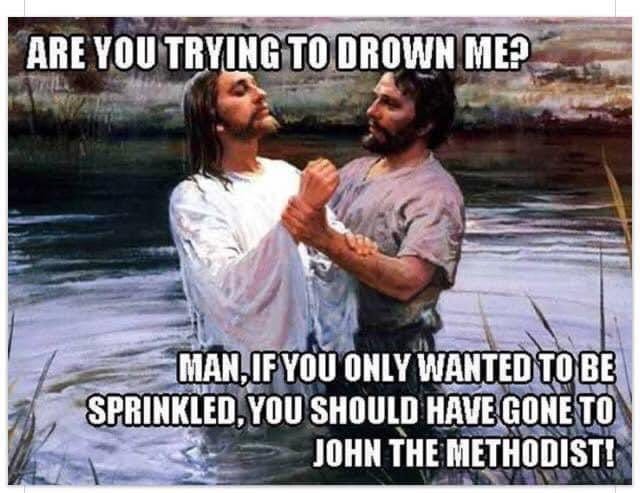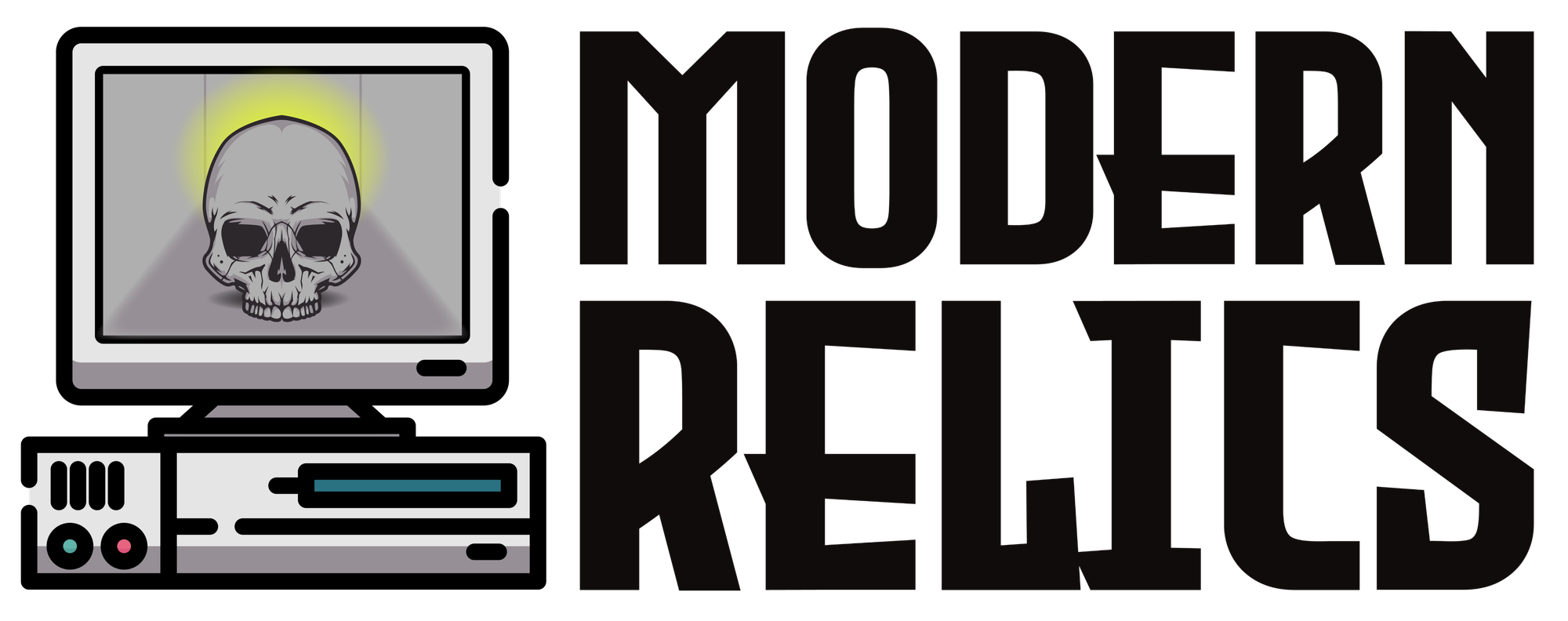Did NASA really hire 24 theologians?
Also, the Trinitarian tradition is on notice
I know I said that the previous edition would be the last for the year, but I’m more or less stuck at home while COVID ravages Sydney and also I legitimately do actually do this for fun. So here we go!

NASA hired 24 theologians (or did they?)
Ok so, what if one of the most high profile, government-funded, scientific organisations hired two dozen theologians to help prepare humanity for alien contact?
Pretty great story (first reported by The Times in the UK) but it’s confused a few people on my timeline at least, and I can’t find a lot of corroborating information. Here’s a version of the story from the New York Post, if you’re not a Times subscriber.
Like, if NASA is spending money on theologians, does that… mean… they found something specific to ask about..? But also are theologians (perhaps exclusively Christian theologians?) the right people to ask?
It doesn’t seem to be true, but it’s complicated. Dr Linda Billings, Consultant to NASA’s Astrobiology Program and Planetary Defense Coordination Office, explains:
In 2015, NASA approved a grant for the Center of Theological Inquiry (CTI) in Princeton, New Jersey, to conduct an inquiry into the societal impacts of the discovery of extraterrestrial life … CTI chooses topics for year-long, multidisciplinary, residential studies. This year’s topic is the environment and climate change. CTI is not a religious institution and has no affiliation with any church.
…
CTI crafted the questions to guide the astrobiology inquiry. It selected the scholars who would participate. Note that the inquiry involved “theologians and scholars in the humanities and social sciences” – not just theologians. No one at NASA had anything to do with these processes.
From what I understand, one of these scholars selected by CTI, Rev Dr Andrew Davison, is about to publish a book called “Astrobiology and Christian Doctrine”, which covers part of the work done by CTI published in 2016.
Rev Dr Davison has done theology on “whether one would respond theologically to the prospect of life elsewhere in terms of there having been many incarnations, or only the one theologians talk about in Jesus” but this was not part of the NASA grant, or at least not a significant part. So the book is not funded by NASA (although it covers work funded by NASA), and nor were the “24 theologians” all theologians.
Andrew Davison’s work sounds extremely interesting, and I’d like to speak with him about it one day, but it seems his book promotion has been taken out of context and turned into something it was never meant to be.
Sprinkle sprinkle

The Trinitarian tradition is on notice
Here’s a weird thing that happened on Christmas Day: a militant unitarian Twitter account posted that they would “storm the dark trinitarian cathedral with the blazing light of truth.”
It’s a bit provocative to post something like this on the day Christians mark the birth of the second person of that Trinity, but it’s also highly unusual to see a unitarian use such bombastic language. Unitarians, generally speaking, are well-known for being extremely non-creedal and chill with whatever beliefs people have.
So it’s important to point out that the Unitarian Christian Alliance (UCA) was founded in 2019 and isn’t affiliated with the Unitarian Universalist Association, nor are they the same as the Unitarian Universalist Christian Fellowship.
In their FAQ about the Unitarian Universalists, the Unitarian Christian Alliance says:
Unitarian Christians are not to be confused with “Unitarian Universalists,” who are a non-Christian religion. Members of the UCA are committed Christians who hold to the Scriptures as their standard for Christian faith and life.
They teach it is impossible to believe in both what the Bible says and the doctrine of the Trinity, and they even have a “UCA Affirmation”, which outlines their core beliefs.
Dogmatic Unitarians? If you can imagine a belief system, it probably exists, so… it’s surprising but yeah.
That’s also why this tweet garnered so much attention over the last few days, at least in my circles, and the tweet got ratioed (the ratio of retweets + likes vs replies + quote tweets was wildly imbalanced, indicating a negative response).
The responses and memes in the replies and quote tweets are pretty amazing to read. Here’s a couple:
All it took to unite the Rad Trad Catholics and the rabble of Protestants was a “biblical unitarian” posting an edgy tweet on Christmas Day. And I think that’s beautiful.
Indigenous Australian Muslims
You may not know, but it’s likely Islam has a longer history in Australia than Christianity. In the 1700s, Makassan traders came to what is now the Kimberly region in Western Australia and Arnhem Land in the Northern Territory looking for trepang (sea cucumber).
Modern day Indigenous Muslims in Australia probably have more recent origins, likely receiving the faith from the Afghan cameleers, who helped cart goods to and from the sheep stations in central Australia from the 1860s to the 1930s. But their history and faith is no less significant to the story of religion in Australia.
AJ+ made a video featuring Aboriginal Muslims on TikTok. I would like to speak with all these TikTokers please, thanks.
What’s going on with this online “religion”
I forgot to include this in last week’s edition - James Hennessy’s Substack, The Terminal is very good, and totally worth an annual subscription (I’m a subscriber).
Two weeks ago he wrote about a story in Vox about an “internet religion” influenced by nationalistic and New Age conspiracy-type posting including QAnon.
Call it the religion of “just asking questions.” Or the religion of “doing your own research.” It’s still in its infancy, and has evolved in an attempt to correct a societal wrong: that the world is a pretty fucked up place and it doesn’t seem like the current system of dealing with it is really working, so maybe something else is going on, something just out of reason’s reach.
There’s been an ongoing conversation over the last year or so about whether or not QAnon is the beginning of a new religion. “Religion” is notoriously difficult to define, but this worldview (for want of a better word) certainly intersects with Christian nationalism in the United States and overlaps with New Age spirituality too.
This piece by Timothy Pettipiece in The Conversation compares QAnon to Gnostic Christianity and this one by Marc-André Argentino examines the neo-charismatic movement Omega Kingdom Ministry (OKM) which uses Q drops to interpret the Bible.
Earlier this year RNS reported on a Public Religion Research report indicating 15% of Americans fall into the category of “QAnon believers”, so that’s one to keep an eye on in 2022, I reckon!
(I should note that the tweet at the top of this post isn’t directly related to what I’m writing here other than Pepe the Frog has become associated with far right communities online, and they’re all doing a religious-looking thing. Matt Furie, creator of Pepe, actively works against the character’s cooption by toxic online communities.)
Alright happy new year everyone


